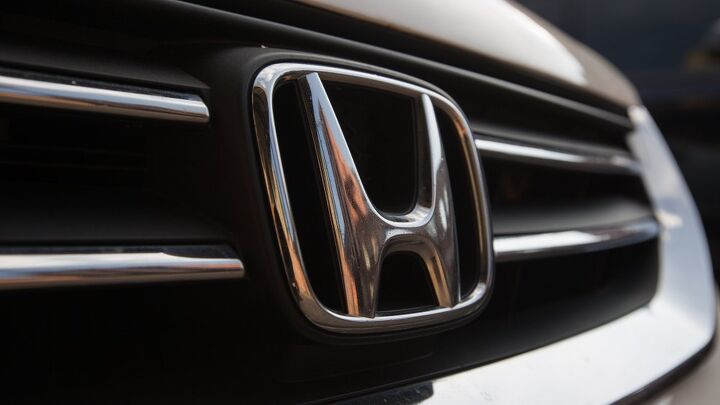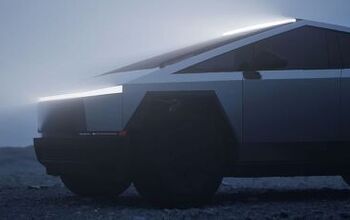Honda Recalling 450,000 Vehicles Over Seat-Belt Defect

The National Highway Traffic Safety Administration (NHTSA) has issued a notice that nearly 450,000 Honda and Acura models are being recalled over seat-belt latches that may malfunction.
Noted as a manufacturing defect in the report, it sounds as though the release button can get stuck and prohibit the seat belt from being properly secured. This represents an obvious safety concern that Honda and its supplier are going to be required to address.
The NHTSA issued a letter to the automaker on March 14th, estimating the full tally as 448,613 units from the 2018-2020 model years. But Honda was already on the case and had determined that a safety defect existed – prompting it to conduct a safety recall – by March 2nd, meaning the NHTSA’s later documentation was just the obligatory paperwork being filed.
While the total number of cars is not broken down by individual models, we do know which vehicles are impacted. Affected models include certain examples of the 2018-2019 Accord (including Hybrids), 2017-2018 CR-V, 2019 Insight, 2018-2020 Odyssey, and the 2019-2020 Acura RDX. Federal regulators likewise estimated that only about 1 percent of the pool actually possesses the relevant defect “based on supplier and manufacturing records.” Though they’ll still all have to be checked to satisfy the terms of the recall.
“The seat belt buckle channel for the driver and front passenger seat belts were manufactured out of specification, causing interference between the buckle channel and the release button,” explains the report. “With continuous use, the buckle channel surface coating may deteriorate over time, and the release button may shrink against the channel at low temperatures, increasing friction. This can result in issues with the seat belt buckle latching.”
Beyond the problem being limited to the front seats, additional details are absent at this juncture.
Honda first caught wind of the issue in 2019 and reportedly launched an investigation that included testing the relevant parts at extremely low temperatures that same year. However, serious concerns about the scope of the problem don’t seem to manifest until late in 2022. Honda has also stated that (as of March 2nd, 2023) it had received 301 warranty claims pertaining to the issue between March 22, 2019, and January 16, 2023 – none of which were accompanied by any reports of injury or death.
Dealers will replace the driver and front passenger seat belt buckle release buttons or the buckle assemblies as necessary, free of charge. Owner notification letters are expected to be mailed notices starting April 17, 2023. However, owners may contact Honda customer service at 1-888-234-2138 or utilize the NHTSA website for more information.
[Image: Stanislavskyi/Shutterstock]
Become a TTAC insider. Get the latest news, features, TTAC takes, and everything else that gets to the truth about cars first by subscribing to our newsletter.

A staunch consumer advocate tracking industry trends and regulation. Before joining TTAC, Matt spent a decade working for marketing and research firms based in NYC. Clients included several of the world’s largest automakers, global tire brands, and aftermarket part suppliers. Dissatisfied with the corporate world and resentful of having to wear suits everyday, he pivoted to writing about cars. Since then, that man has become an ardent supporter of the right-to-repair movement, been interviewed on the auto industry by national radio broadcasts, driven more rental cars than anyone ever should, participated in amateur rallying events, and received the requisite minimum training as sanctioned by the SCCA. Handy with a wrench, Matt grew up surrounded by Detroit auto workers and managed to get a pizza delivery job before he was legally eligible. He later found himself driving box trucks through Manhattan, guaranteeing future sympathy for actual truckers. He continues to conduct research pertaining to the automotive sector as an independent contractor and has since moved back to his native Michigan, closer to where the cars are born. A contrarian, Matt claims to prefer understeer — stating that front and all-wheel drive vehicles cater best to his driving style.
More by Matt Posky
Latest Car Reviews
Read moreLatest Product Reviews
Read moreRecent Comments
- Tassos Jong-iL This would still be a very nice car in North Korea.
- Jeff One less option will be available for an affordable midsize sedan. Not much can be done about GM discontinuing the Malibu. GM, Ford, and Stellantis have been discontinuing cars for the most part to focus on pickups, crossovers, and suvs. Many buyers that don't want trucks or truck like vehicles have moved onto Japanese and South Korean brands. Meanwhile large pickups and suvs continue to pile up on dealer lots with some dealers still adding market adjustments to the stickers. Even Toyota dealers have growing inventories of Tundras and Tacomas.
- Lorenzo This car would have sold better if there was a kit to put fiberglass toast slices on the roof.
- Lorenzo The Malibu is close to what the 1955 Bel Air was, but 6 inches shorter in height, and 3 inches shorter in wheelbase, the former making it much more difficult to get into or out of. Grandma has to sit in front (groan) and she'll still have trouble getting in and out.The '55s had long options lists, but didn't include a 91 cubic inch four with a turbo, or a continuously variable transmission. Metal and decent fabric were replaced by cheap plastic too. The 1955 price was $1765 base, or $20,600 adjusted for inflation, but could be optioned up to $3,000 +/-, or $36,000, so in the same ballpark.The fuel economy, handling, and reliability are improved, but that's about it. Other than the fact that it means one fewer sedan available, there's no reason to be sorry it's being discontinued. Put the 1955 body on it and it'll sell like hotcakes, though.
- Calrson Fan We are already seeing multiple manufacturers steering away from EVs to Hybrids & PHEVs. Suspect the market will follow. Battery tech isn't anywhere close to where it needs to be for EV's to replace ICE's. Neither is the electrical grid or charging infrastructure. PHEV's still have the drawback that if you can't charge at home your not a potential customer. I've heard stories of people with Volts that never charge them but that's a unique kind of stupidity. If you can't or don't want to charge your PHEV then just get a hybrid.

































Comments
Join the conversation
...but the defective parts were well installed!
Decades later, I'm still peeved that Honda failed to recall and repair the seat belts in my '80 Civic. Well-known issue with the retractors failing to retract.
Honda cut a deal with the NHTSA at that time, to put a "lifetime warranty" on FUTURE seat belts, in return for not having to deal with the existing problems.
Dirtbags all around. Customers screwed, corporation and Government moves on.